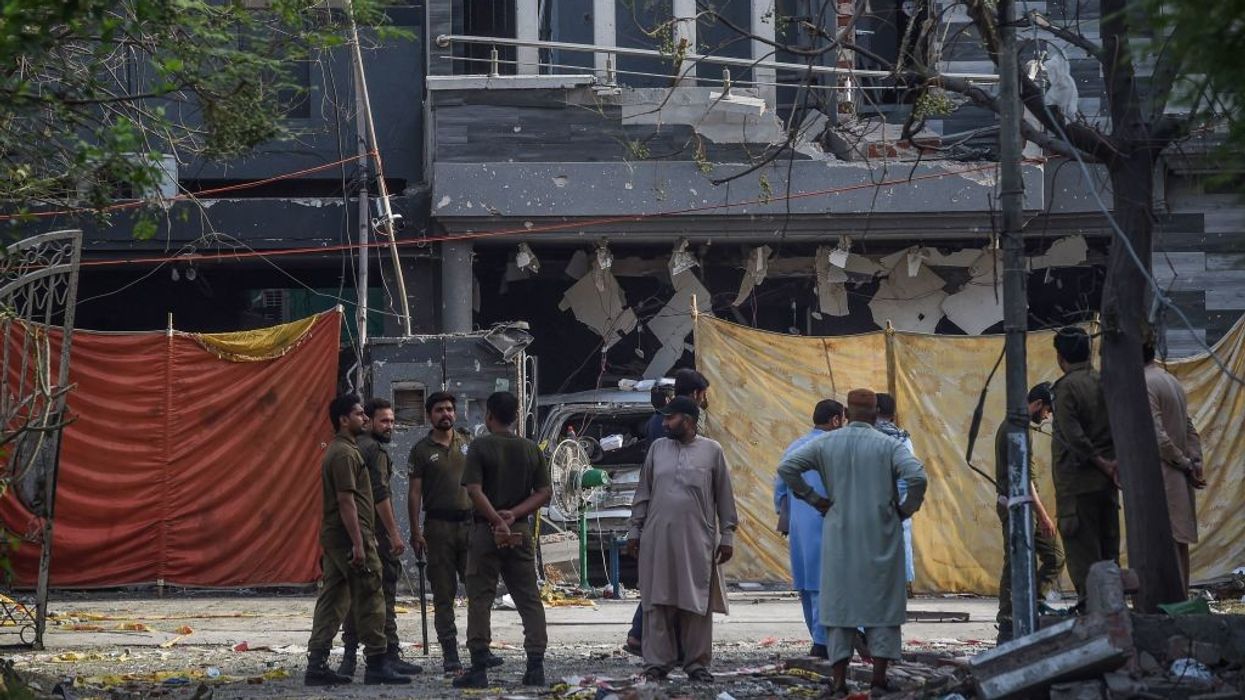PAKISTANI authorities on Thursday (24) took several suspects into custody after an explosion outside the house of Jamat-ud-Dawa (JuD) chief Hafiz Saeed, who is the alleged mastermind of the 2008 Mumbai terror attack.
At least three people were killed and 21 others injured in the blast that took place at a police picket outside Saeed's residence in Johar Town in Lahore on Wednesday (23).
Some police officers guarding Saeed's house also suffered serious injuries.
No group has claimed responsibility for the incident which damaged Saeed's house.
According to a Geo TV report, the counter-terrorism department (CTD) of the Punjab police conducted raids across different cities after the blast.
The CTD and intelligence agencies have collected evidence - including ball bearings, pieces of iron and the vehicle's parts - from the crime scene, the report said, citing sources.
Investigating agencies have also started "geofencing" the area to help with the blast probe, the report said.
In geofencing, a virtual geographic boundary around an area is created using the global positioning system (GPS) or radio frequency identification technology, enabling software to trigger a response when a mobile device enters or leaves the area.
Saeed, 71, has been serving a jail sentence at the high-security Kot Lakhpat Jail in Lahore in relation to terror financing cases.
Pakistan People's Party chairman Bilawal Bhutto Zardari said the country could see an increase in such attacks due to the “flawed Afghan policy” of the government, led by prime minister Imran Khan.
Addressing the media at the Parliament House in Islamabad on Wednesday, Bilawal said Pakistan's policy in the Afghan peace process “is not correct” and added that some terrorist organisations are also active across the border, The Express Tribune newspaper reported.




